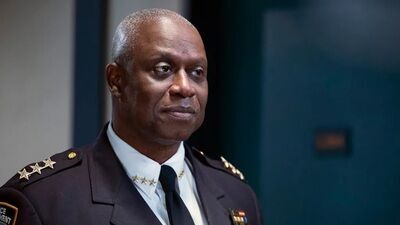It helped Andre Braugher’s sense of gravity that he was a Chicagoan through and through, able to capture both a deep intellectualism and a street-smart savvy that carried life experience in his bones. He was the youngest of four children to two parents who worked tough jobs for a living—a postal worker mom and an equipment operator dad—and it feels like that upbringing in the Austin neighborhood influenced an actor who understood hard work and physicality on stage. He went to the esteemed St. Ignatius on the West side of the city and earned himself a scholarship to Stanford University, where he majored in theater before making the jump to Julliard.
Only a year after leaving that esteemed academy, Andre Braugher was in an Oscar-winning film. His impact was that immediate, appearing in “Glory” in 1989. His breakthrough would come not long after in a show that quite simply transformed the entire TV landscape. Any list of the most important TV characters of all time that doesn’t include Detective Frank Pembleton is incomplete. Paul Attanasio’s “Homicide: Life on the Street” wasn’t like other cop shows when it premiered in 1993 on NBC. Based on David Simon’s book about the Baltimore Police Department, and often using cases pulled directly from it, “Homicide” had a grit and truth to it that felt nothing like the whitewashed, sterile shows on other networks. It wasn’t afraid to be dangerous, unpredictable, and aimed solely at adults. “Homicide” is an essential building block in the peak era of TV. “The Sopranos,” “The Wire,” and many more might not exist without it. It became the first drama ever to win three Peabody Awards.

“Homicide” was an ensemble drama, but Braugher’s turn as Pembleton was its center. He didn’t just become the face of the show, he became the changing face of network TV, an actor who proved that rich character work could be done within the construct of a case-of-the-week structure. In 1996, he was nominated for two Emmys in the same year for “Homicide” and “The Tuskegee Airmen,” and he won his sole award for “Homicide” in 1998.
He would work consistently from then to his death, alternating TV, theatre and film with ease. He seemed equally at home in all three forms, in any genre. He could slide from a blockbuster like “Poseidon” or “The Mist” to a Shakespeare in the Park production of Henry V that won him an Obie Award to TV dramas like “Gideon’s Crossing,” “Men of a Certain Age,” and “Thief,” which won him a second Emmy.

